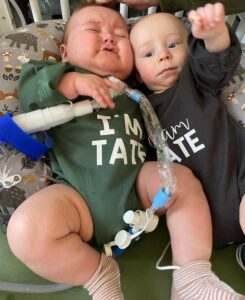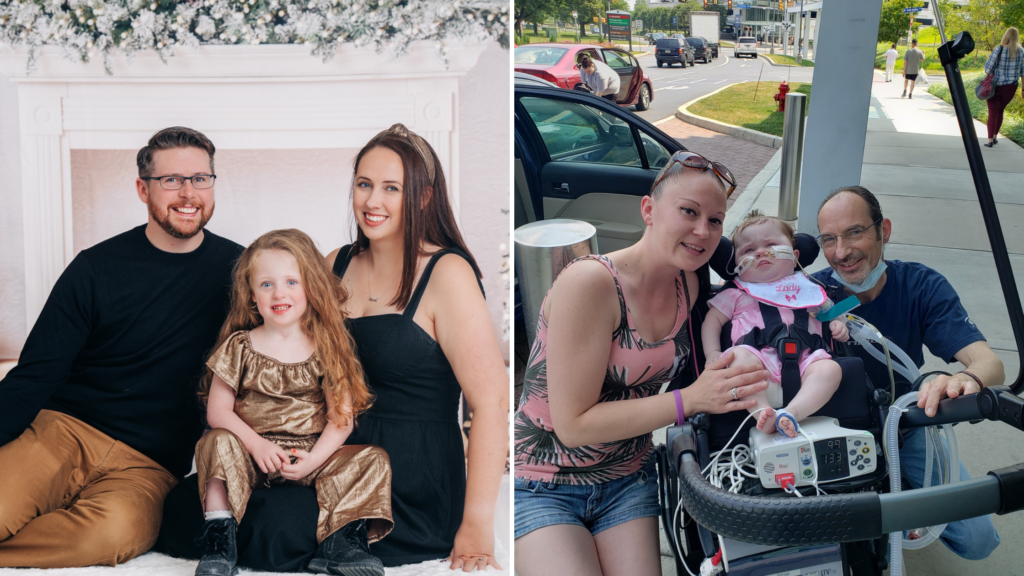
To mothers of children with medical complexities, Mothers Day may not mean breakfast-in-bed,
flowers, and fingerpainted cards.
Instead, these moms are shuttling back and forth from hospitals and doctors appointments, providing care to children with trachs, vents, and other medical equipment, and coordinating the skilled services that their children need. Due to the shortage of home care nurses across the US, many mothers with medically-fragile children are pulling double duties as their child’s nurse and as a mom.
Below are the stories of two very unique superhero moms who have gone above and beyond to care and advocate for their medically fragile children.
How Their Stories Started
Alexis Stull and Melissa Maranto met in 2020 when they both had newborn daughters with medically complexities—and both daughters remained in the NICU for months after their birth – even after doctors medically cleared them for discharge. Hospitals require most NICU children to be discharged with home nursing. When there are no nurses available to take on these cases, these children are often “stuck” in the NICU until home nursing is secured. Alexis and Melissa struggled to bring their babies home due to this shortage.
Now, these moms are taking on multiple roles as moms, nurses, and advocates to help solve this workforce shortage so that other families don’t have to go through the same experience they did.
Mom Melissa & daughter Lacey
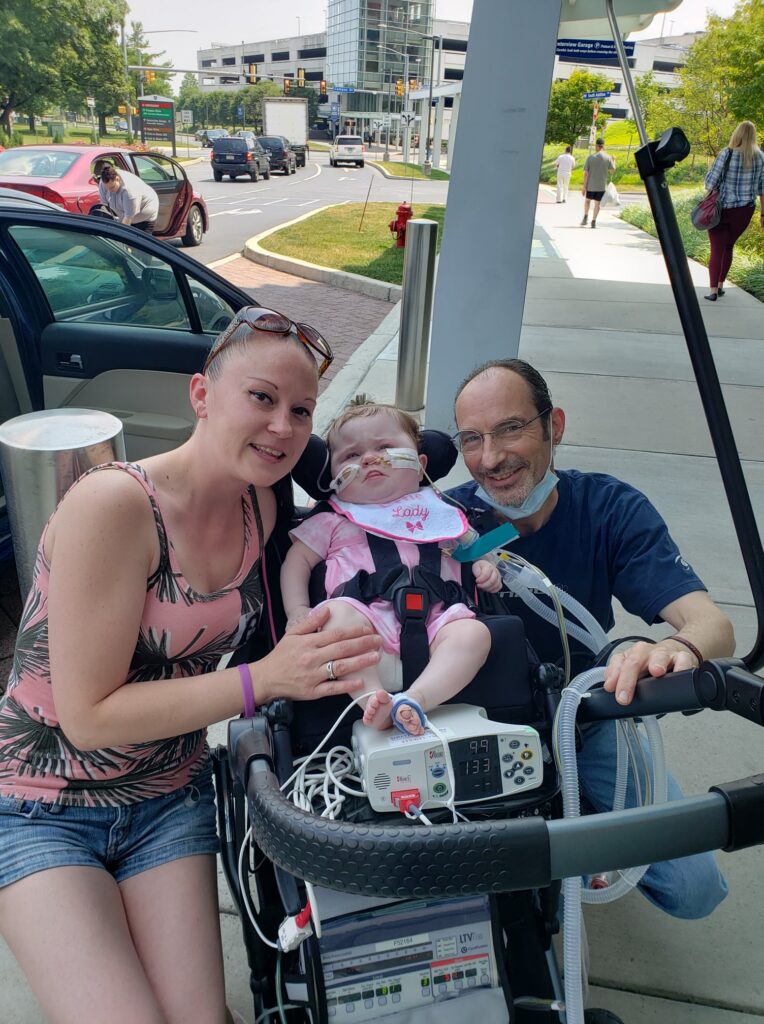
Lacey was born in February 2020 and did not leave the NICU for 511 days – well after her first birthday, and months after doctors cleared her for discharged. Hospital staff informed Melissa that if home nursing could not be secured, Lacey would likely need to be admitted to a long-term pediatric facility.
“It’s like a nursing home for babies – a place that no parent would ever want their child to be,” says Melissa.
Lacey was finally able to come home with a home care nurse, but due to the workforce shortage—Melissa still struggles to access home nursing for Lacey. “We live near a hospital facility, and they can compete for all the nurses. There is rarely a qualified nurse available in home care, because they all go to work at the hospital or as a traveling nurse—both of which pay more than home care,” she says.

For a year now, Melissa has thankfully had a steady team of two nurses. Melissa now has the capacity to take care of herself and her responsibilities as a mom, while the nurses take on Lacey’s skilled medical care. But given her experience with nurses coming and going, Melissa worries when one of them may leave to take on better-paying work elsewhere.
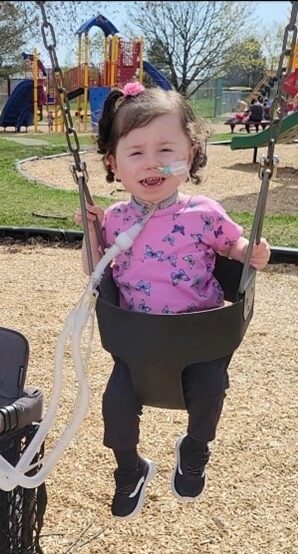
From Mom and Nurse, to Advocate.
When asked what she wishes the public and lawmakers knew about home nursing care and how it affects families like hers, Melissa said that she wants “people to know that these babies stuck in hospitals shouldn’t be there. Kids deserve to grow up at home, and a proper home nursing workforce is necessary—for these children, but for their parents and families too.”
“Home nurses provide one-on-one care and keep kids at home and out hospital rooms. They do
everything facility nurses do and they keep families together. They deserve a fair wage.”
Melissa and many other moms, dads, and families are asking Pennsylvania lawmakers and others around the country to increase funding for home care.
Mom Alexis & daughter Leena
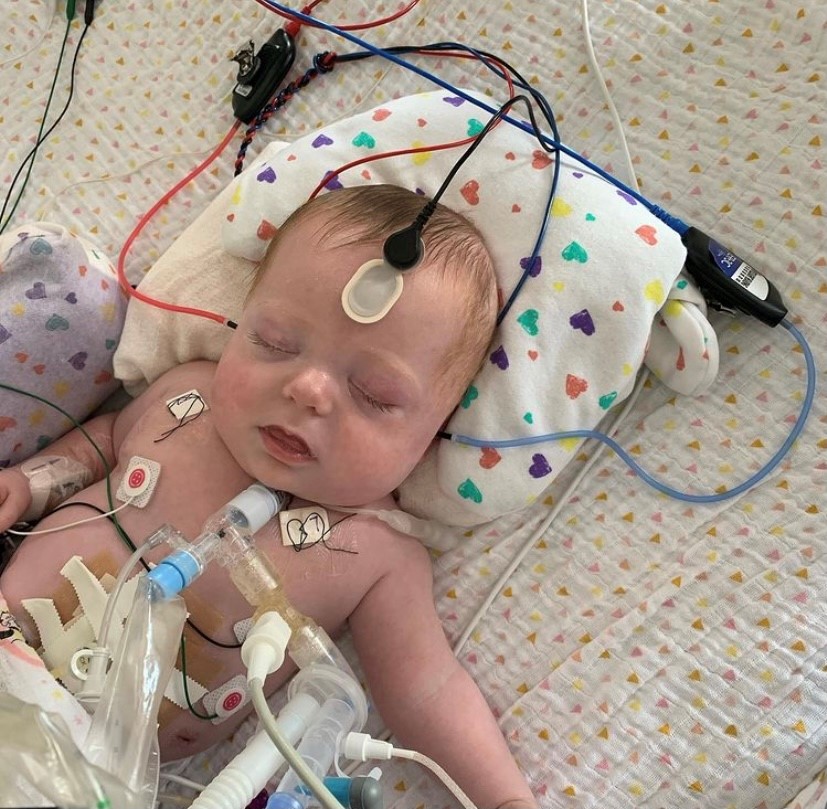
Leena came home from the Children’s Hospital of Philadelphia (CHOP) NICU at 9 months old, after a
two-month delayed discharged due to the home nursing shortage. At that time, Leena was on a
ventilator 24/7 and was unable to sit unassisted or roll over. Today, at three-and-a-half, Leena is
running, jumping, talking—and even learning how to swim. She no longer needs a ventilator or trach,
and she successfully had surgery to close her fistula in November 2022!
Leena’s parents are grateful for the team of nurses that helped Leena during her first years at home. They even have two of the same nurses that were there when Leena first came home. Turnover for home care nurse is high, as many home care nurses leave to take better paying job elsewhere. But this consistency in Leena’s care has not only helped her to stay safe and healthy at home, but it has allowed her to learn, grow, and love. “Leen’s nurse have become members of the family,” she says. “They are just as heavily invested in her physical and mental success and growth as my husband an I are.”
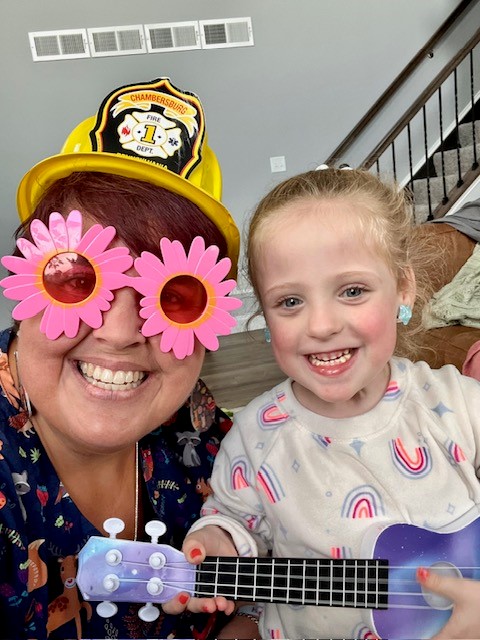
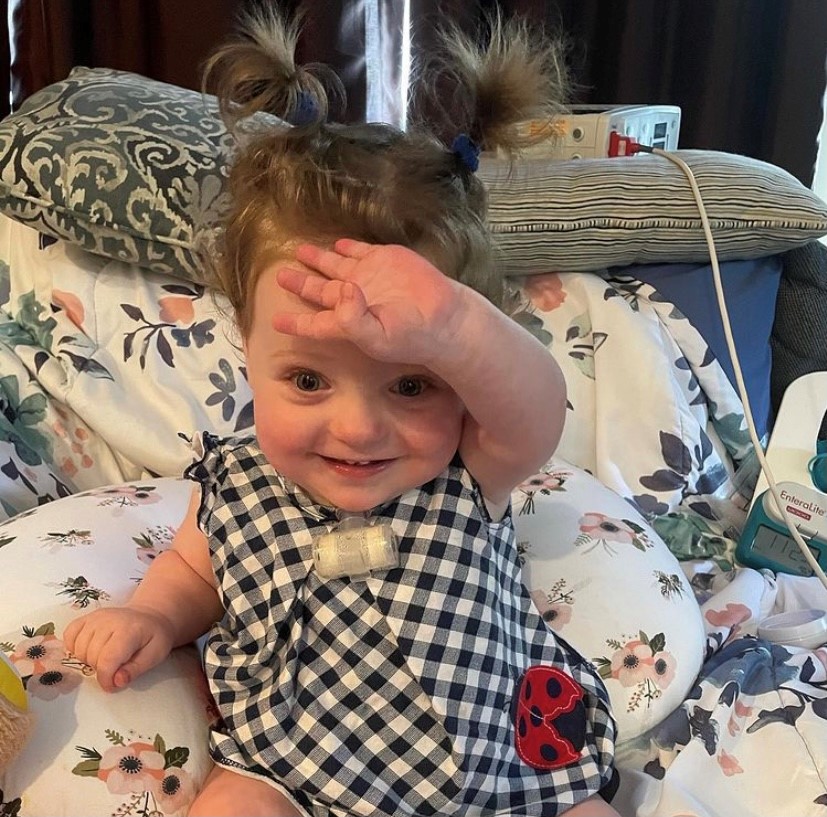
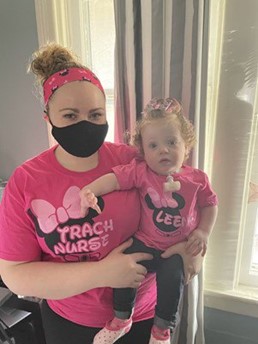
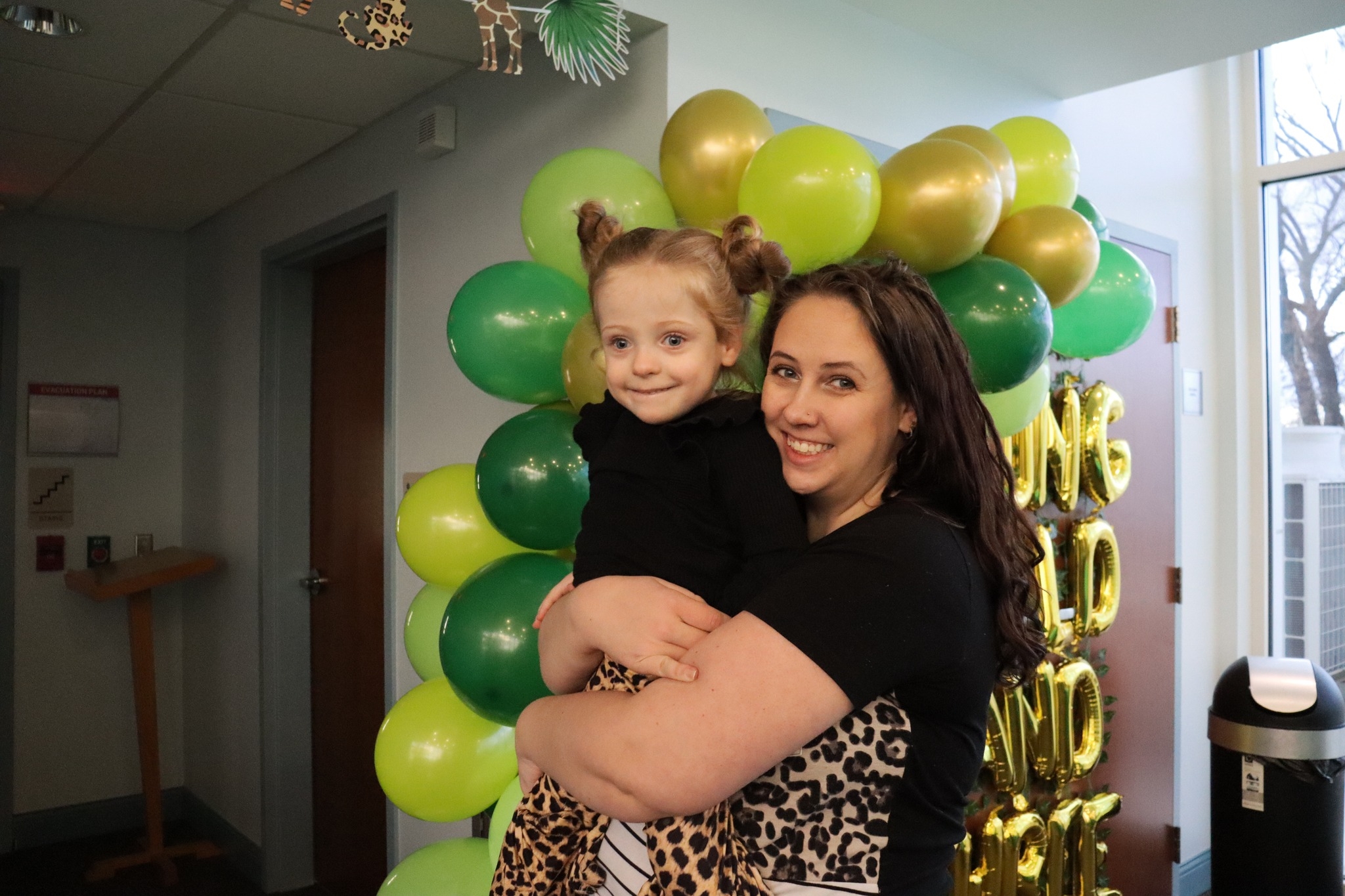
A Mom on a Mission to Take a Stand.
Now that Leena ha less acute medical issues and is thriving with the help of her in-home care nurses, Alexis has taken on a new role: passionate home care advocate.
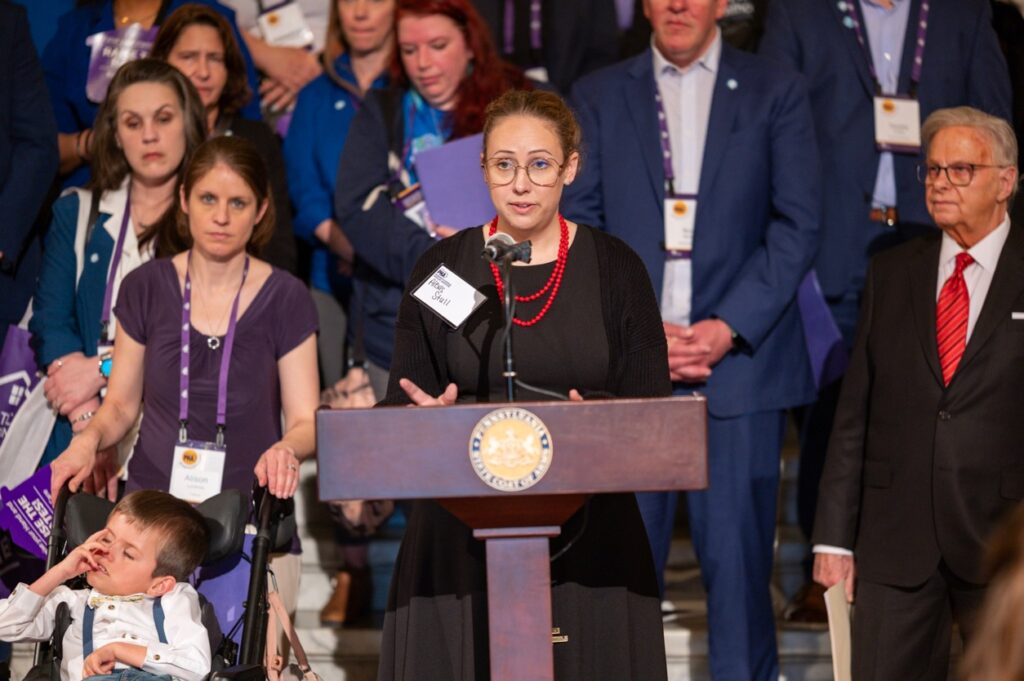
She recently attended the Pennsylvania Homecare Association’s (PHA) annual Advocacy Day in Harrisburg where she met with her state legislators and shared Leena’s story with them. During her meetings, she expressed the domino affect that families are experiencing due to the workforce shortage. She also was the keynote speaker during the press conference where she urged lawmakers to solve the care issue by properly funding home care programs.
“Not only does the home nursing workforce shortage prevent children from going home, but it prevents other newborns that need those NICU and step-down unit beds from accessing them. When NICU beds are full at large and specialized hospitals, then parents are forced to send their complex children to less advanced hospitals—potentially compromising their ability to get the best care possible,” says Alexis.
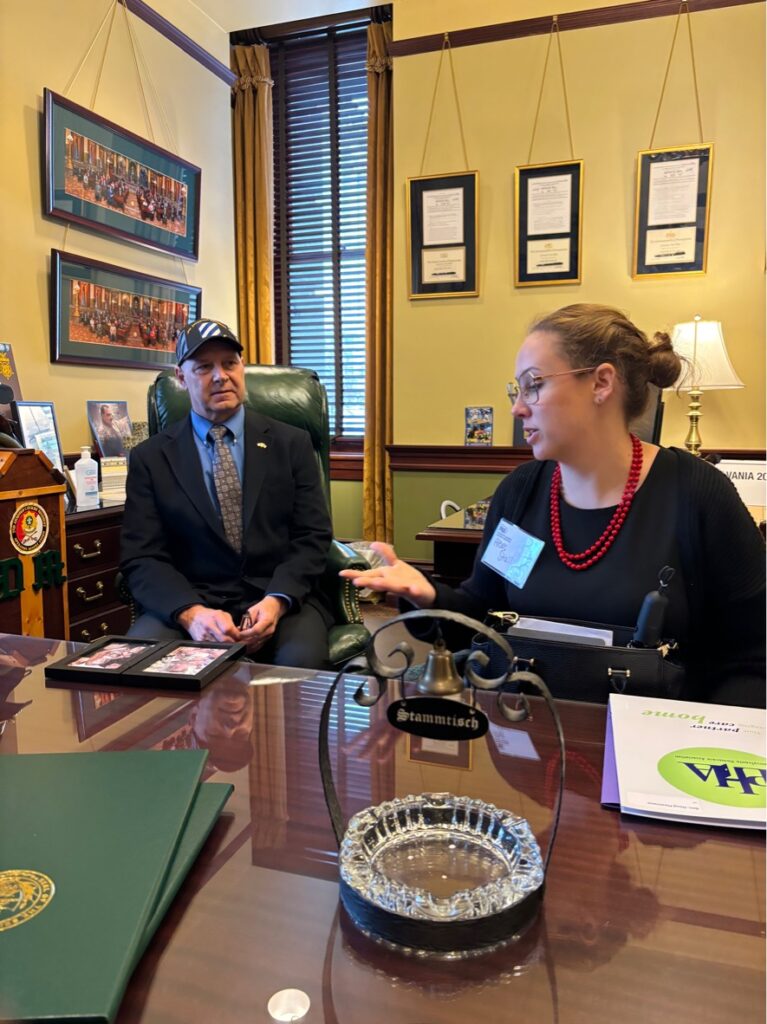
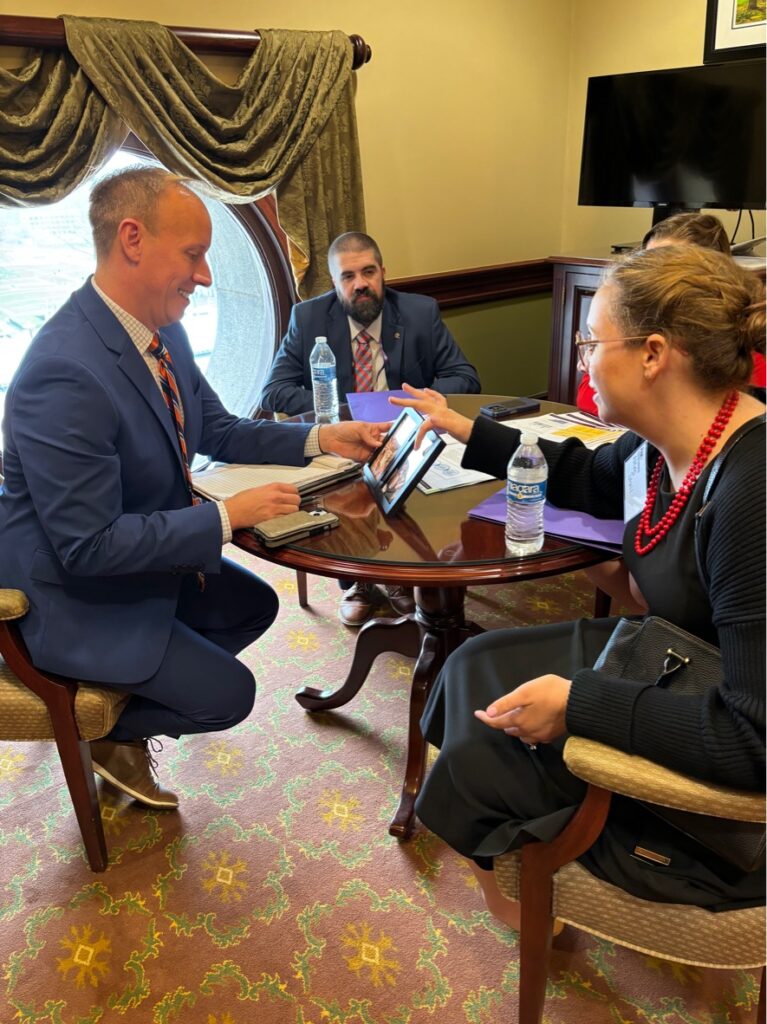
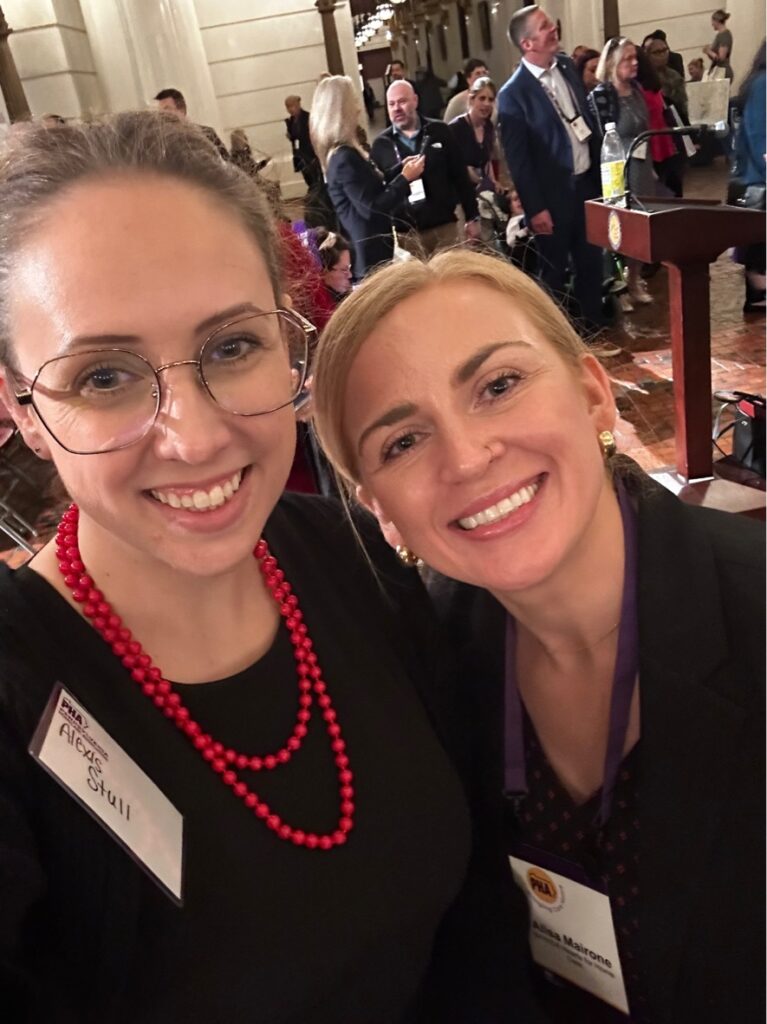
How Legislators Can Support Superhero Moms
Home nursing is a lifeline for millions. But without a fair funding commitment from state and federal legislators, nurses will always be attracted to better paying jobs in hospitals and other facilities. Moms undoubtedly have a major role to play in their children’s lives – and that is to be a mom, not a specially-trained nurse. Now is the time to equalize access to home nursing for the many future children that will need this care to go from the NICU to the place they ought to live and grow up: in their own homes.






